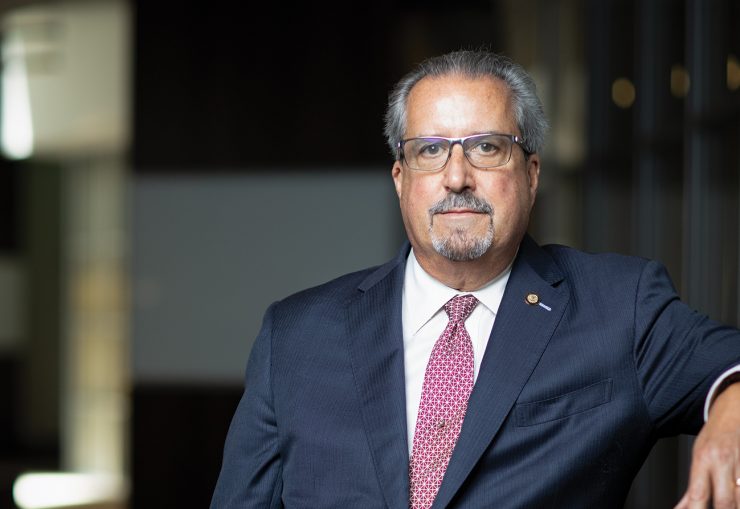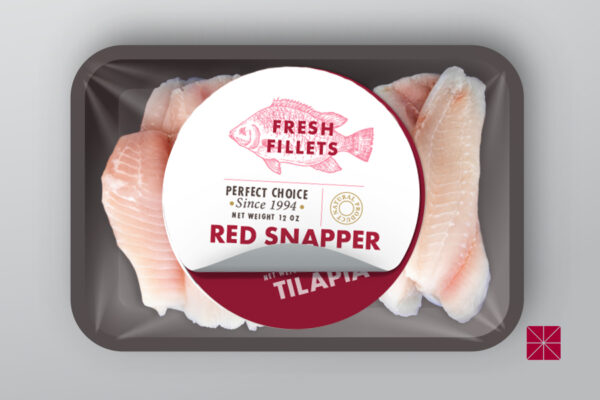It’s hard to resist becoming a looky-loo when you visit the office of Ron Jordan, dean of the Chapman University School of Pharmacy (CUSP). Vintage apothecary and pharmaceutical bottles with glass stoppers sit next to mortars and pestles, antique pill rollers and colorful antique jars, lining shelves and his office window.
“Pharmacists tend to be collectors,” Jordan says with a laugh. “I think we just find it interesting to look at how much the profession has changed.”
It’s a particularly relevant perspective at CUSP, where change and progress are ongoing themes. In the five years since the school opened its doors as the first pharmacy school in Orange County, its faculty have received 67 research grants — nearly two-thirds of them funded by federal agencies. This year the school landed its first RO1-level grant, a $1.6 million award from the National Institutes of Health (NIH) to study Kaposi sarcoma-associated herpesvirus. Within its first five years, CUSP not only achieved full accreditation but also earned a national ranking among the top pharmacy schools in research funding.
Then there are the new pharmacists. CUSP has celebrated two graduating classes and welcomed 60 graduates to its new chapter of Rho Chi, the academic honor society in pharmacy.
All that happened under the leadership of a pharmacist who came of age before advanced pharmacy degrees were offered and who describes himself as “just an administrator kind of business guy.”
Of course, there’s more to Jordan’s resume. He previously served as dean of the College of Pharmacy at the University of Rhode Island, where he oversaw completion of construction on his college’s $75 million research and teaching facility. He is a former president of the American Pharmacists Association and serves on the United States Pharmacopeia Expert Panel on Safety and Labeling Standards, Medicare Guidelines Subcommittee.
Such experience equipped Jordan for the unique job of building a School of Pharmacy at Chapman’s growing Rinker Health Science Campus in Irvine.
Q. You have a lot of entrepreneurial background in businesses, ranging from health benefits software to hospice and pain management. How much has that guided your work at CUSP?
A. Business requires an ability to express a vision and get people headed toward that goal. It’s the same in academia. Most faculty here are far more qualified than I am, in terms of intellect and ability to teach. I’m not a teacher; I’m just an administrator kind of business guy. I was able to use the business expertise to do the hiring – to recruit people and structure and manage a budget.
Q. A lot of people outside academia might be surprised to learn that a dean doesn’t necessarily teach.
A. I think my role is mainly to guide and support people. So I tell everyone here that I’m here to make you successful — to get anything out of your way that’s going to hinder your success, and to get you whatever you need to make you successful. If I make the staff and faculty successful, then the students will be successful.
Q. What were some of the challenges to building a new school of pharmacy?
A. When I graduated from pharmacy school in 1976, there were probably 75 schools of pharmacy (in the nation). When I came out here to California, I think there were 130. Now there are 149. So it’s been a very rapid growth, and you can see why. The population is aging, people are taking a lot of prescription medications. Drug therapy is the most common form of medical therapy – more than visiting the doctor, more than dentistry. The challenge is always to find faculty and be sure that you’re competitive. And so I made sure that Chapman was going to make the kind of investment I thought we needed to make in the kind of School of Pharmacy we wanted to build.
Q. How would you describe the CUSP model?
A. It’s strong research underpinning instruction in the basic sciences. Our scientists conduct funded research, while on the clinical side we teach students to become pharmacists and practitioners. As the students get further and further into the curriculum, the focus is on therapeutics and pathology-related pharmacology and the students start to practice. At the very end, 30 percent of the curriculum is experiential.
Q. How is CUSP different from other pharmacy schools?
A. We use an integrated exam system in which we test the students on all subjects every three weeks. Our approach not only requires that students understand the kind of board exam they’re going to face, but it compels them to study every day and keep up with classes so that when they get to the exam, it won’t be a big panic-and-cram situation.
Another thing we did is design our Freshman Early Assurance Program. We want to capture bright students who know they want pharmacy right out of high school, give them two years of preparation and prerequisites for the pharmacy program, and then bring them to CUSP. So they graduate from Chapman with their Pharm.D degrees in four and two-thirds years.
Q. One of your new initiatives is patient safety. CUSP hosts a patient safety conference every spring, is planning an M.S. degree in patient safety, and works with the medical technology company Masimo on its Patient Safety Movement Foundation. Why is this effort important?
A. Today, adverse drug events are the third leading cause of death in the country. That tells me that we haven’t really done the job we need to do in health care. The system is complex, and there are many challenges with transitions of care. Our faculty helped write patient safety solutions that are part of a new curriculum the foundation developed to help educate healthcare professionals.
Q. Are pharmacists on the front line of care?
A. We’re often the first line. And we can do a lot better at it. Our graduates will help make that happen.





